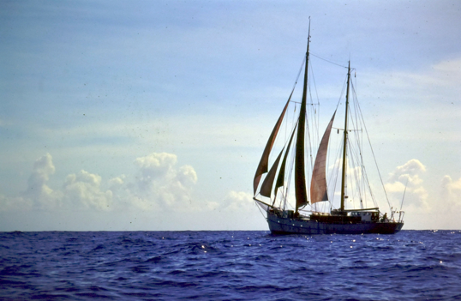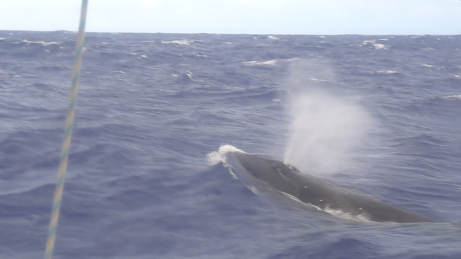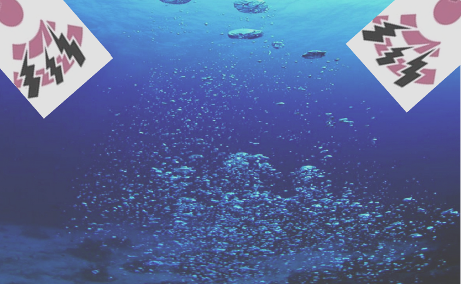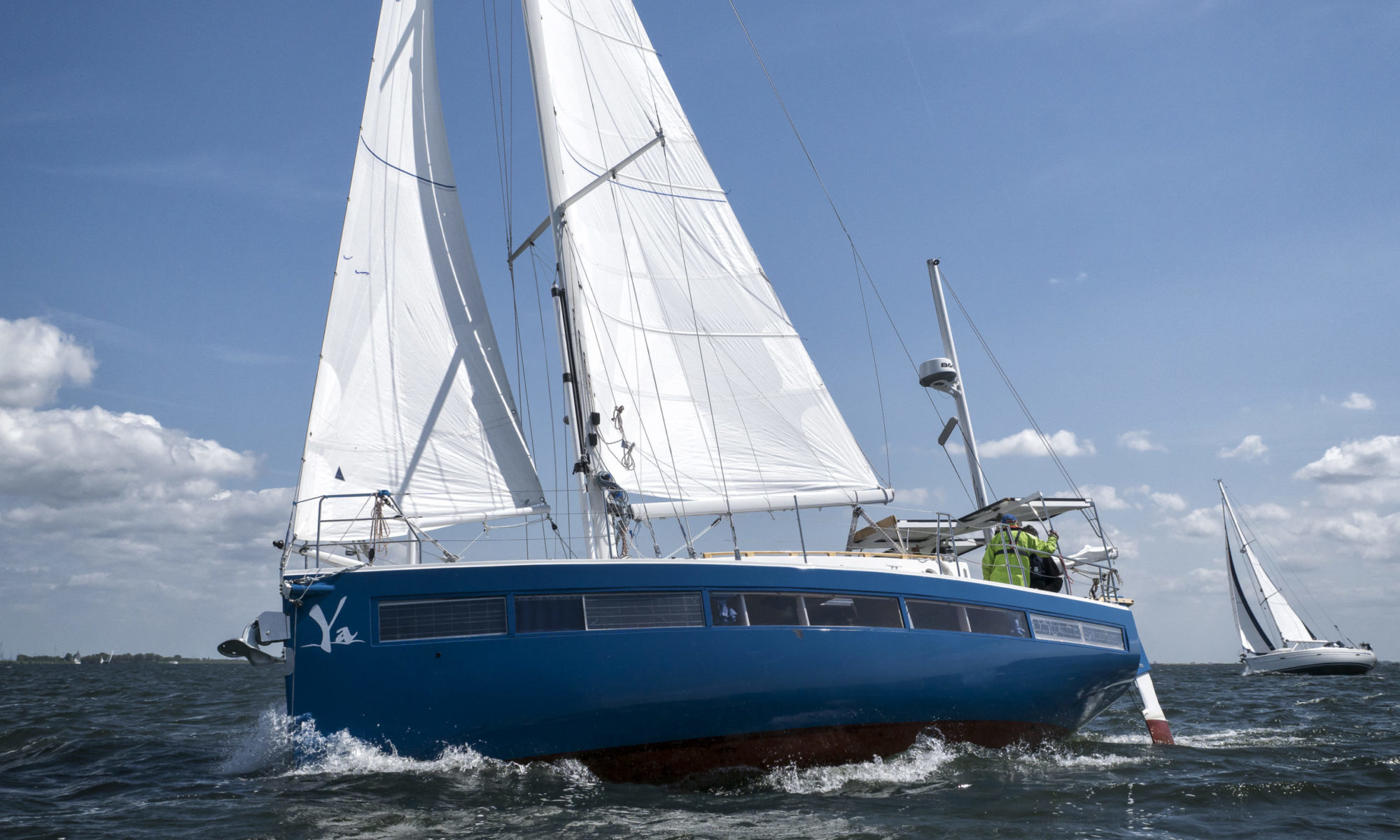It was 30 years ago and we were floating somewhere on the Atlantic, sailing an old two mast Dutch lugger. The wind was dropping to zero and we, all six crew, just lowered all of the 500 square meter of sails. Then, the deckhand a loft yelled: “Whales! A whole lot-a-them!”

‘Our’ old fashioned lugger somewhere on the ocean
We started seeing them from deck. Big ones. Humpbackwhales. Slowly they were making their way to us. Till about some 200-300 meter. There they kept plunging, playing, but did not come closer. They were just checking us, we guessed. So, we enjoyed, waiting. The captain had a great camera, but they were just to far off for a good picture. He kept on trying while the whales played their game on the same distance. Then the engineer started the engine to help the captain to get closer. Half power we went to them. But 10 seconds later, as if they discussed it, all whales disappeared at once.

A whale swimming with Ya
Did you know, talking through water works great, much better than talking through the air. Water does not muffle the sound, like air does. Never thought of that? Neither did scientists, till the late sixties. They discovered that whales communicate over hundreds of miles by making a sound in the lower frequencies. Dolphins do the same on a higher frequency and shorter distance.
The relation
Every decade the human made noise in the ocean doubles. More frequently then ever, whales end up at our beaches. They were apparantly lost. Also the number of lost whales grow, despite the fact that there are less and less. Lately scientists hear dolphins screaming in the water, instead of the regular ‘talking’. The causal relation can not be proven, but the correlation is too strong to not take action.
What can we do to stop the dolphins from screaming?
Like a radio jammer
The noise in the oceans we make come from three sources. By far the biggest culprit is the ship’s propellers. When running on higher rotations, they create ‘cavitation’. This creates the noise you can compare to the noise of pebbles running through a steel pipe. What do you think, would happen to a whale’s ears? Or, suppose the whales are hundreds miles away, what do they hear? All props together must create a sound in their ears, like when you hear a continuous disturbing noise on your radio. Like one big radio jammer.

You can bring your hand to the throddle and go slower. Making 4 knots through the water in stead of 6 , stops the cavitation. And by the way, your fuel consumption dives down with 50%, so that is good for your own wallet. This also contribute to reduce the second cause.
Sudden blows
This second cause is the bangs created by seismic research, mostly for oil and gas. The impact for a whale or dolphin close to it is obvious. Will the animal, just a mammal as you and I, be deaf perhaps? We don’t know. And these blows can be heard a thousand miles away, so how do they interpret these signals? Like you and I would suspect: Is there is a war going on?
Continuous noise
The third source are the wind generators at sea. They produce a consistent low sound, just the frequency the whales communicate with. Lucky us, we found technology to reduce it, even to stop it. It still has to be done.
Meanwhile you can use less energy, so then we don’t need to build that many. And it saves you in the wallet.
You enjoy music? For the sea mammal, our North Sea must sound like a bar blowing bad techno 24/7 on a loud volume.
IMO SDC 9 ; the boring bureaucracy will do it
Rules can do the thing. Therefore we need bureaucracy.
That should work globally. Therefore we invented the United Nations. Short cutting now, we go straight to the Subcommittee on Ship Design and Construction, starting their 9th meeting this week. The USA, UK and Netherlands are members of influence.

Give our members a push into the right direction.
Help stopping dolphins from screaming.
Send an email.
Send an email
You can send an email like this:
To info@imo.org
Subject: To the members of the SDC-9
Fill in what you want. An opening is:
Dear Members of the Subcommittee on Ships Design and Construction,
Here under a suggested subject to inspire you.
Cavitation and sea mammals in the current ecosystem
Cavitation disturbs the sea mammal communication. These mammals are crucial in the chain of ocean life in our current ecosystem. The ecosystem can do without mammals, no worries about that. But that will then be an ecosystem to the disadvantage of our next generations, with dying plankton, copepods, fish, and without human beings.
